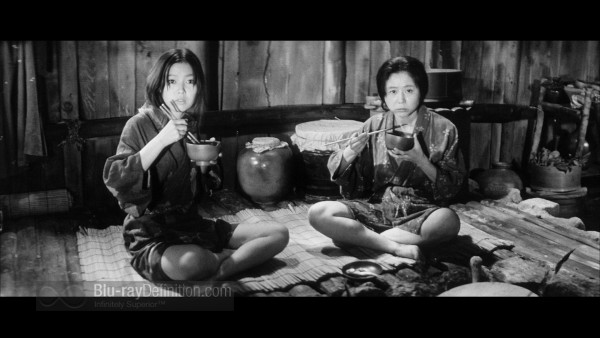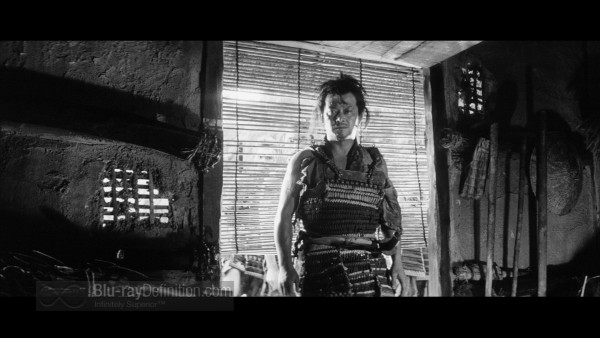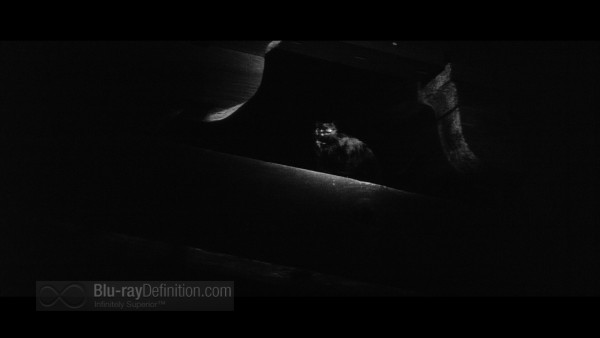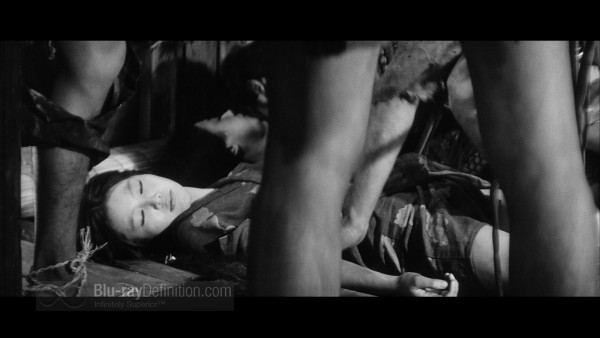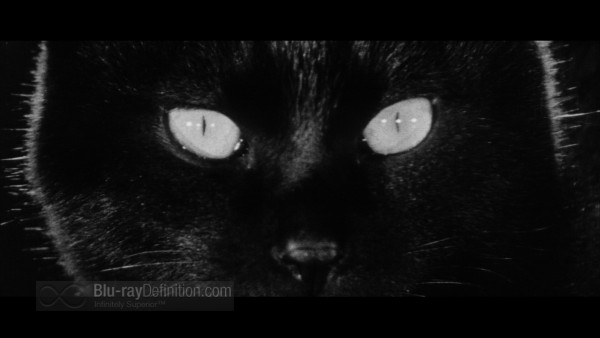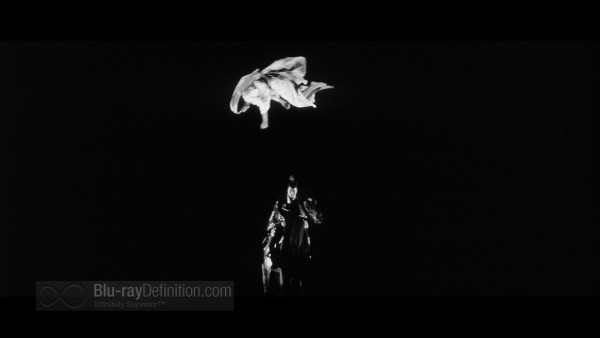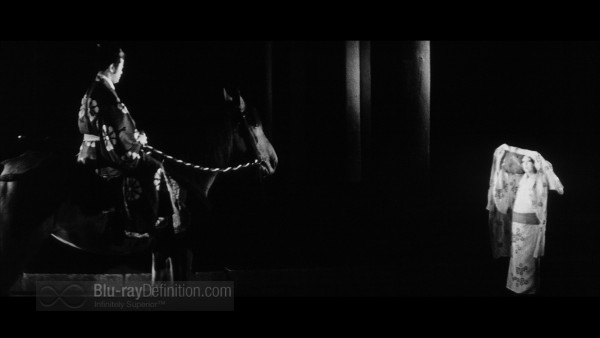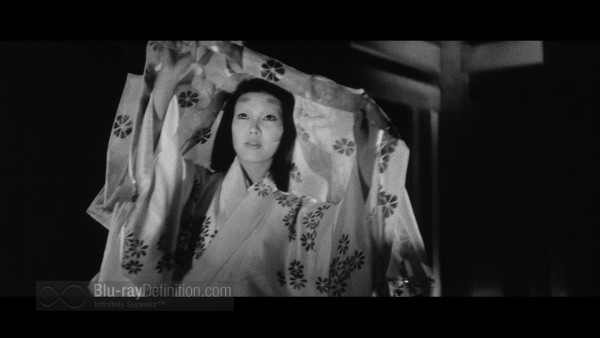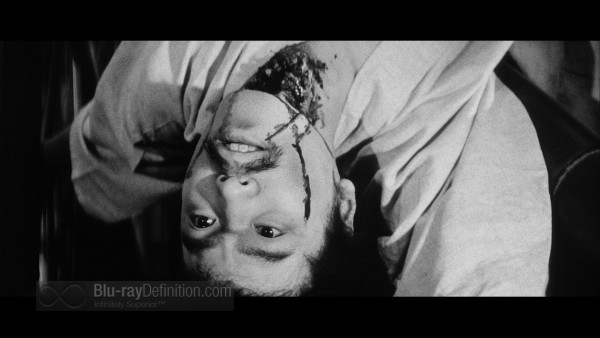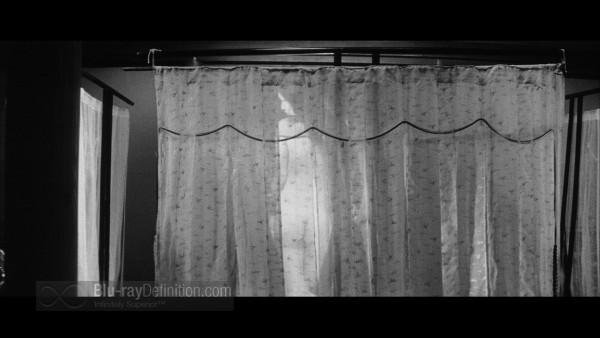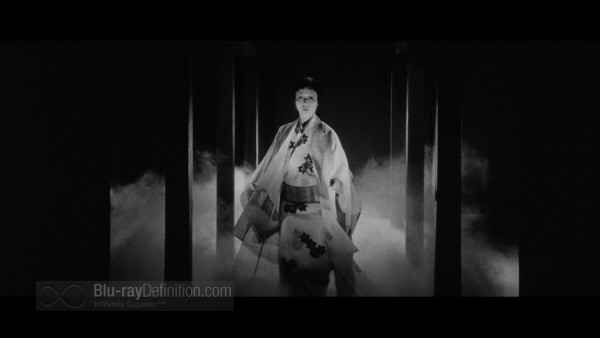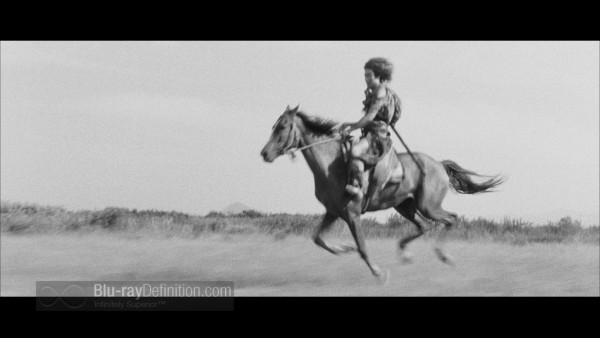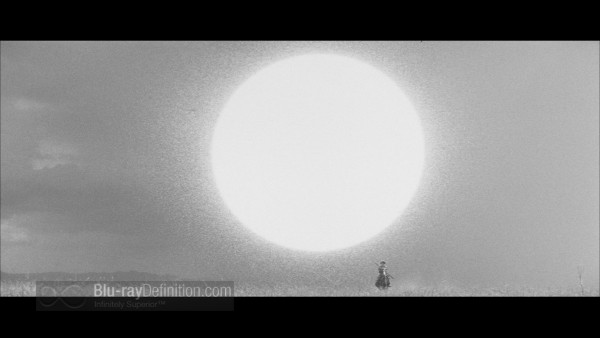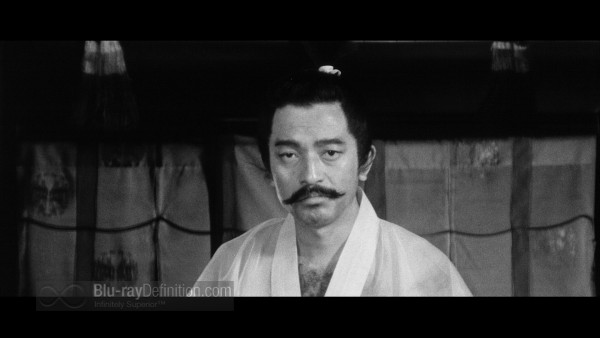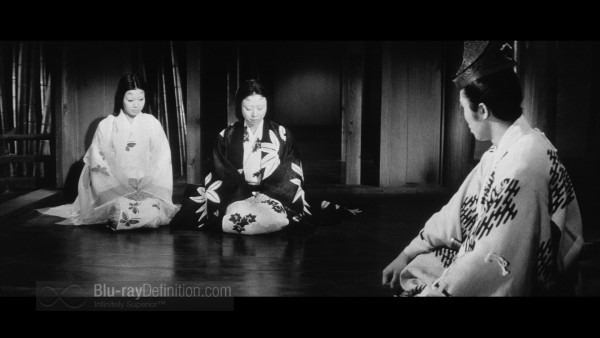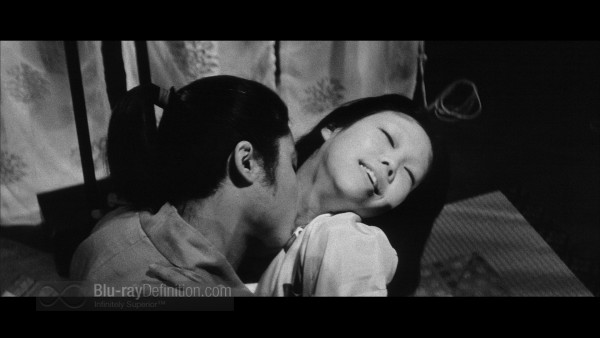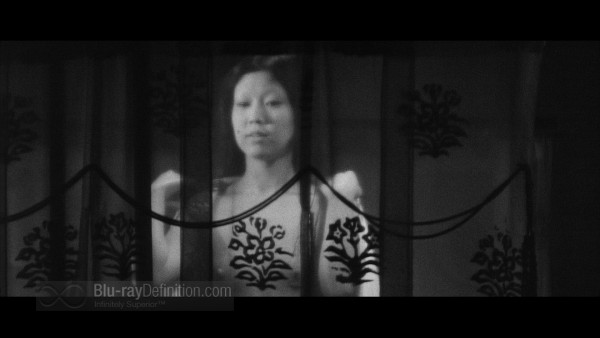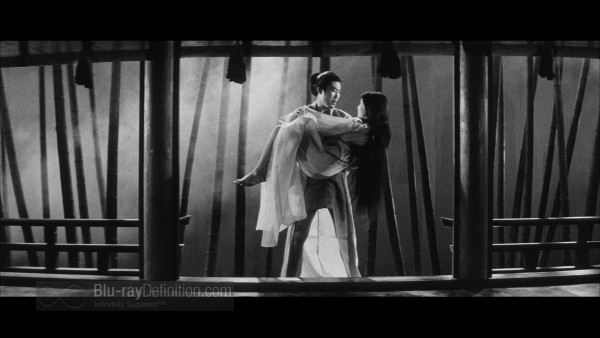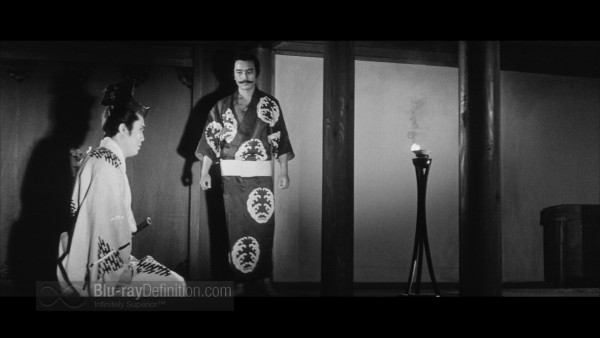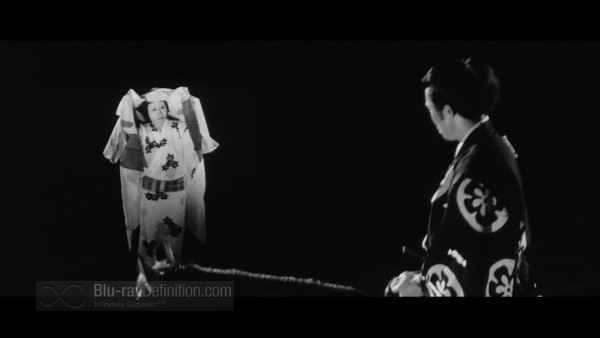–
Click thumbnails for high-resolution 1920X1080p screen captures
(Screen captures are lightly compressed with lossy JPEG thus are meant as a general representation of the content and do not fully reveal the capabilities of the Blu-ray format)
The Film
[Rating:5/5]
If you are a fan of “J-horror” films like The Ring (Ringu) then watching this 1968 classic from director Kaneto Shindo is a must. Kuroneko (Black Cat) is an eerie, stylized horror film that at times plays almost like kabuki theatre. It is sexually charged and lays the groundwork for all of the Japanese horror films that have followed in its wake.
Set during Japan’s Sengoku, Warring States, period, Yone (Nobuku Otowa) and her daughter-in-law Shige (Kiwako Taichi) have been left alone after the man of the house, Hachi (Kichiemon Nakamura) is abruptly drafted into the army of local warlord Raiko Minamoto (Kei Sato). A roving group of tired, hungry, and lawless samurai under the rule of Raiko make their way out of the tall bamboo forest and descend upon the two women, ravaging their home, helping themselves to the food and drink and then to the women themselves. Afterward, the women lay dead where they have fallen and the samurai slink back into the forest, setting the home on fire. But something strange occurs. In the morning, the house has burnt down around the women’s bodies, but they are still intact, a black cat licking at their wounds.
Three years later, one of the samurai rides through Rashomon Gate, the border between Kyoto and the countryside, and he is approached by a woman, a vision aglow in white, with flowing kimono, like a beautiful dream. He agrees to escort her back to her home where he finds her alone with her mother. He realizes they seem just like Yone and Shige. The women have been haunting the gate and killing the samurai. Now Raiko wants the “monster” stopped. Returning from his mission for Raiko, it falls on Hachi to stop them, but immediately realizing that the ghosts are his mother and wife, he cannot bring himself to kill them, nor can the women bring themselves to kill him. But they are bound by an oath to the god of evil to kill all the remaining samurai and drink their blood. Shige and Hachi begin an otherworldly love affair that will lead to diabolical consequences.
With its gorgeous imagery in beautiful widescreen back and white, Kuroneko seethes with sensuality. It is ahead of its time for visual effects, but not in a heavy-handed way. The glowing whites and deep blacks are almost noir-ish in appearance, provoking a hair-raising experience.
Video Quality
[Rating:3.5/5]
‘This new high-definition digital transfer was created on a Spirit 4K from a 35mm print struck from the original camera negative. Thousands of instances of dirt, debris, scratches, splices, warps, jitter, and flicker were manually removed using MTI’s DRS system and Pixel Farm’s PFClean system, while Digital Vision’s DVNR system was used for small dirt, grain, and noise reduction.‘
While the blacks look very inky and whites have a nice glow, the overall image in this AVC/MPEG-4 transfer from Criterion Collection tends towards softness and a little inconstancy in grain level. I have to wonder how much of this has to do with the transfer coming from a print of the original negative rather than being taken directly from the original negative itself. These flaws are most noticeable in distance shots and backgrounds where detail softens and is swallowed up by grain.
Audio Quality
[Rating:4/5]
‘The original monaural soundtrack was remastered at 24-bit from the original optical print. Clicks, thumps, hiss, and hum were manually removed using Pro Tools HD. Crackle was attenuated using AudioCube’s integrated workstation.‘
The monaural soundtrack provided here in LPCM (48kHz/24bit) is clean with little hiss or pops and not much audible crackle in dialogue or sound effects.
Supplemental Materials
[Rating:2/5]
On-disc extras are unusually thin for a Criterion Collection release, with only only two featurettes on offer. The first of the two is an hour-long interview with director Shindo, however, which should make up for the seeming lack of extras on the disc. As usual, the booklet is also mandatory reading, featuring a 1972 interview with Shindo and essay on the film by Maitland McDonagh.
The supplements provided with this release:
- Kaneto Shindo (1.33:1; 01:00:28) – This video interview features Kuroneko director Kaneto Shindo discussing his diverse body of work. The interview was conducted for the Director’s Guild of Japan on April 24, 1998 by Shindo’s former assistant director Seijiro Koyama.
- Tadao Sato (1.78:1; 1080i/60; 00:16:57) – In this video interview, conducted by the Criterion Collection in 2011, renowned Japanese-film critic Tadao Sato offers his insights on the cinematic accomplishments and cultural significance of Kuroneko.
- Trailer (2.35:1; 1080p/24)
- Booklet: Featuring essay on the film by Maitland Mc Donagh, 1972 interview with Shindo by film scholar Joan Mellen, and information on the transfer.
The Definitive Word
Overall:
[Rating:4/5]
More beautiful and moody than outright scary, Shindo’s groundbreaking Kuroneko is deserving of a much wider audience. Perhaps this Criterion Collection Blu-ray release will help build up its cult status, just in time for the upcoming holiday season.
Additional Screen Captures
[amazon-product]B005D0RDRA[/amazon-product]
Purchase Kuroneko [Criterion Collection] at CD Universe
Shop for more Blu-ray titles at Amazon.com




